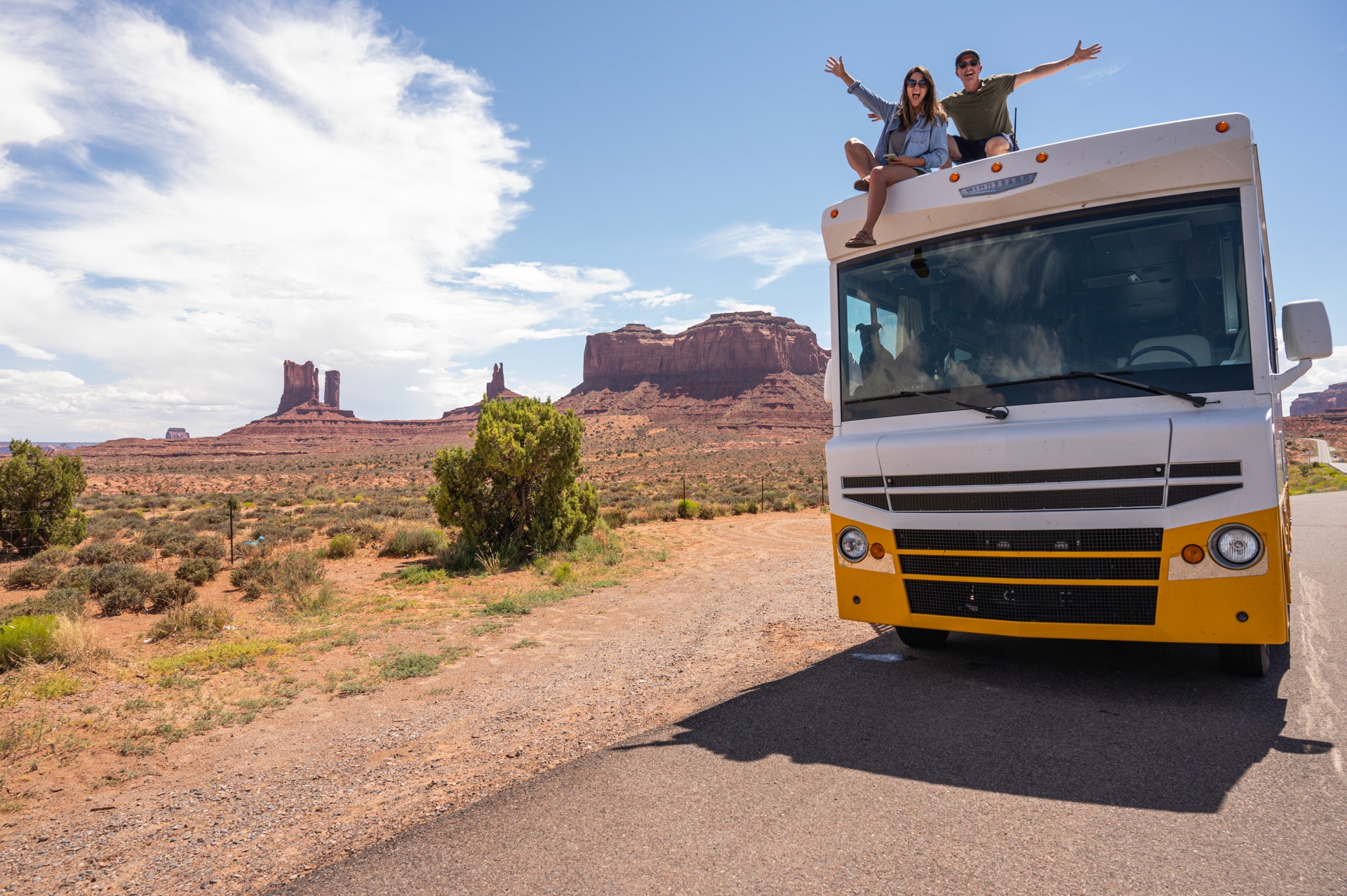*Disclaimer: This post is part of a content series sponsored by Camping World. All opinions are our own.
Whenever we share the story of how we hit the road full-time in an RV and traveled the country while working remotely, we get a variety of reactions from people. However, we overwhelmingly hear, “That’s the dream!” or “I’ve always wanted to do that”. Which always leads us to saying, “You should do it! What’s stopping you?”.
We hear a lot of different fears from people who are dreaming of full-time RVing but too afraid to take the leap. Questions fill their heads and it can often be too much to move past and therefore, that dream slowly dies or becomes silent because you’ve pushed it out too many times.
Well we’re here in this post to help the dreamers move past those fears. We remember being in those shoes – feeling intimidated and overwhelmed by how to make a full-time RV lifestyle work. But if we can do it, so can you!
Here are some common full-time RV fears you may be having and how to move past them so you can hit the road in confidence.
1. What if I Hate it?
Let’s start this fear by flipping it to think more positively…what if you don’t hate it? What if you LOVE it? What if it exceeds everything you think a life on the road will?
Isn’t it funny how sometimes we don’t allow ourselves to think of things actually working out for us? We spend far too much worrying about the worst case scenario. So here is permission to assume the best.
We typically tell people considering a full-time RV lifestyle that if you’re even considering going for it, chances are good you will like it. There are a lot of people out there who would tell you right away that they could never do such a thing. They know they’re too “type A” or maybe just feel that RVing is too much of a sacrifice for them and they prefer a more luxurious way to travel or enjoy stationary life. Chances are you are intrigued by RVing because you enjoy adventure, freedom, and a flexible lifestyle. For those reasons alone, the odds are pretty good that you’ll enjoy it at least for a worthwhile amount of
time.
Let’s wrap up this fear by really digging into the amount of risk you’d have to take. Sometimes hitting the road in an RV full-time requires you to quit your job (I had to quit my dream job), or selling almost everything you own, and other big moves that might feel pretty big and scary. But when we were preparing to launch for the lifestyle, we continually asked ourselves “what do we have to lose?” and it helped to remind ourselves that if it didn’t work out, we could always go back to our “old life” and the way we were living. You can find another job, another house or apartment, etc. but you may never have the opportunity to chase this dream again so what would you rather risk?
And finally, even if you don’t like it and maybe last a month traveling in your RV, what a great opportunity that alone is. Many people will never take that risk in their life or even have the chance to do even just a month long adventure. Chances are in whatever amount of time you do last on the road, you’ll make countless memories and have unforgettable experiences. That is worth it, right?
2. What if I Get Lonely?
There’s a big, welcoming RV community out there. It may seem as if RVers are choosing the lifestyle to get away or go off grid. But, we’re not monsters and no matter what is leading you to the lifestyle, everyone needs community to some degree. In fact, we’ll even go as far to say that we felt we had more community and friends on the road than we did in our suburban neighborhood. We met several friends on the road that we are certain we will keep in touch with for life.
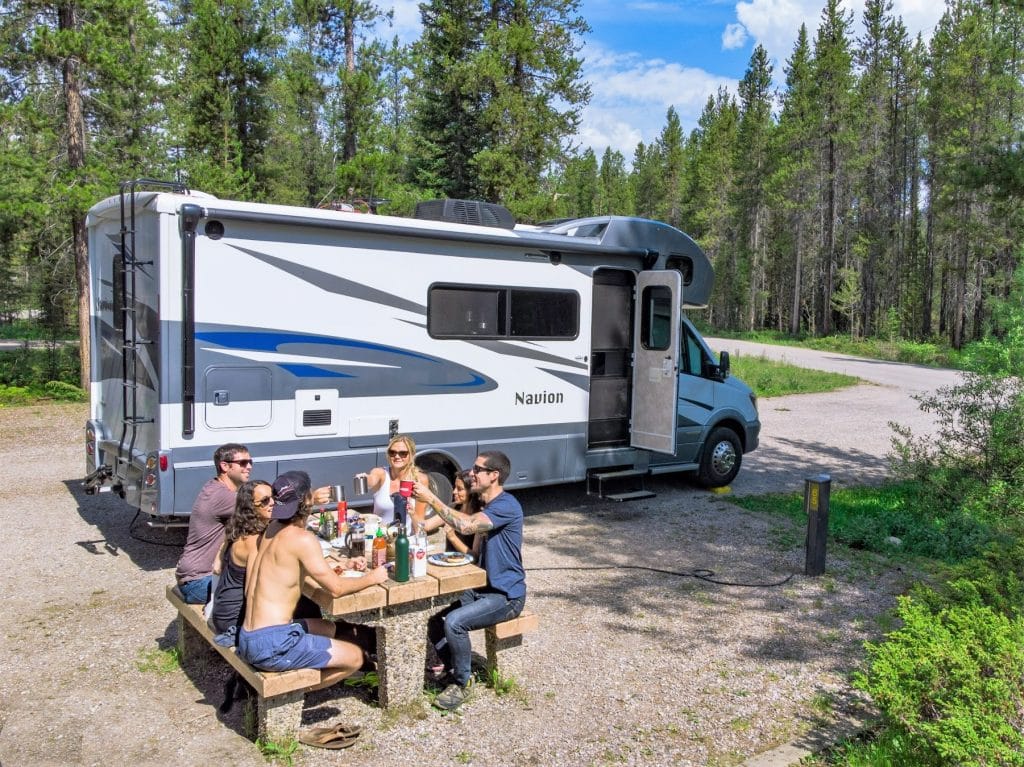
Hopefully that gives you the reassurance that you absolutely won’t be lonely on the road if that’s a concern of yours and you make the effort to get plugged in. Sure, there will definitely be days where you are homesick or miss your loved ones back home, but there are so many different ways to get connected in the RV community that you can throw those loneliness fears out.
For starters, there are some great memberships you can join. There’s a group for every type of RVer – from retirees to digital nomads to van lifers to large families with young kids and everything in between. These groups and clubs often have ways for you to engage with other members online and also regular in person meetups and events.
Another tip is to utilize the power of social media to connect with other RVers. We’ve found that a simple Instagram direct message or comment in a Facebook group can go a long way to helping you find your RV tribe. Join Facebook groups, start searching for and following and engaging with other full-time RVers on all channels and get out there and meet some folks. It’s not an over exaggeration when we say that we find RVers to be some of the friendliest people you can meet.
We’d also advise you to start talking about your full-time RV plans to people and chances are they’ll know someone who will know someone to connect you to who is living the lifestyle. It’s not nearly as uncommon as it used to be.
Perhaps you’re more worried about what you’ll miss out on while you’re away. Yes, your loved ones will continue on without you and you’ll likely miss get togethers and maybe that makes you feel sad. Of course you’ll feel the weight of that, we won’t try to convince you otherwise. However, generally speaking, whenever we’ve been away on the road for awhile and come back, it truly feels as if nothing changed (even though it’s very likely you’ll feel like a changed person!).
3. What if My Friends and Family Think I’m Crazy?
We’re no psychologists, so don’t quote us, but us humans often project our own insecurities and fears on others. We allow other people’s opinions to shape our lives and when you actually take a second to think about that, it’s absurd.
You cannot control what other people think. Repeat that to yourself every single day. Seriously, we all should because it’s a problem we all struggle with.
As long as you’ve put a lot of thought into your decision to full-time RV and your decision won’t negatively impact other people in a serious way, then stop worrying about what so-and-so might say or think when you tell them the news. Choose to share your plans with the people who will encourage and support you. It’s easy to feel selfish when we say yes to going for a big dream, but again, having a friend or family member express that they’ll be sad to see you go or project their fears about the lifestyle on you, aren’t reasons to not go for it.
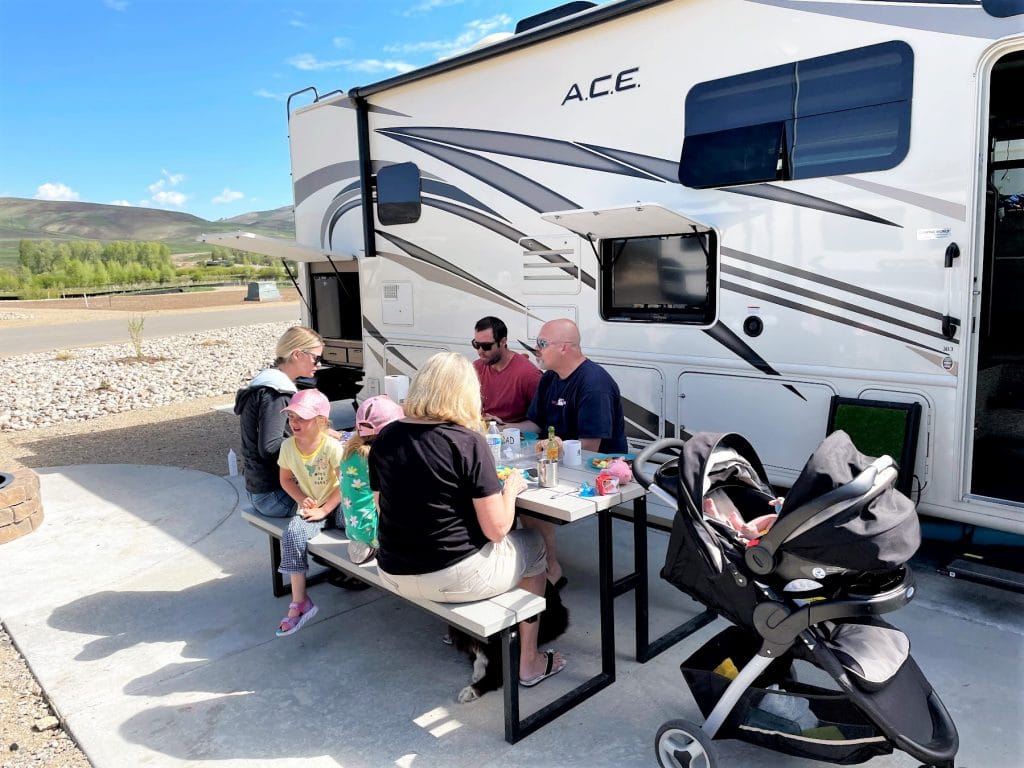
In fact, in our experience, most people think you’re crazy in a good way. They may even be envious and whether they’ll express that to you or not, they likely admire you for going after a big dream and taking a big risk in life for your personal happiness. Besides, wouldn’t you rather be the “crazy” one who gets out there and goes after things in life rather than sitting on the sidelines and watching or playing it safe?
Remember, you have nothing to prove, too. Don’t add unnecessary pressure to yourself because you want to show the doubters that they were wrong.
4. I Have Never RVed Before and I Don’t know What I’m Doing.
Welcome to the club! We hadn’t either.
We didn’t have the slightest clue how to RV when we made the decision to full-time. We had hardly ever camped in an RV let alone live and travel the country in one. It can feel super intimidating at first, just like any new thing you have to learn.
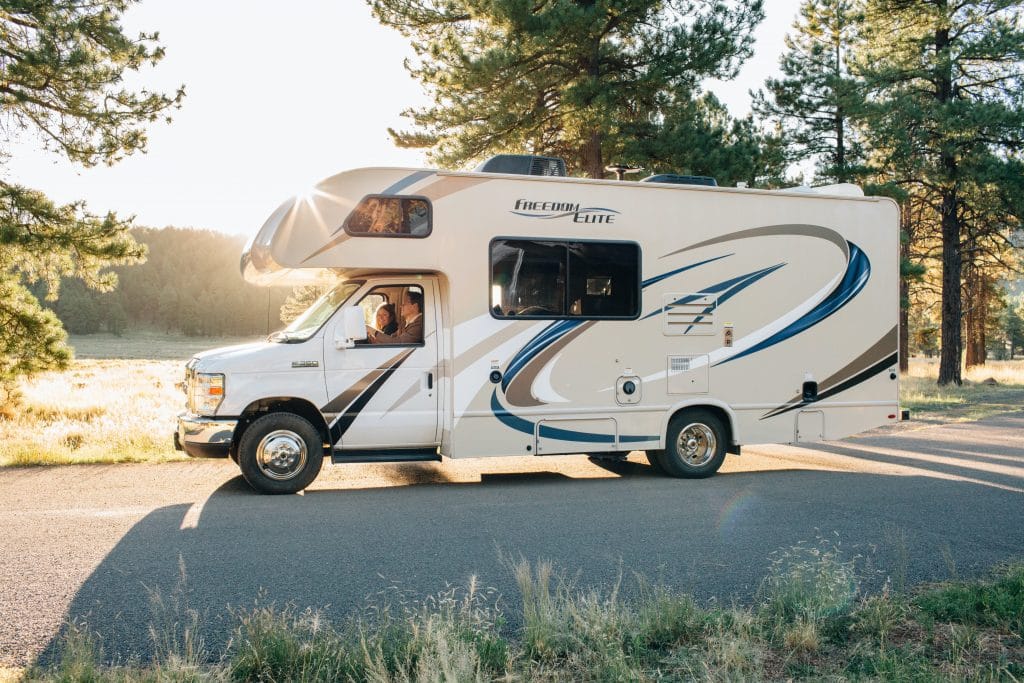
Take a deep breath and remind yourself of all the things you’ve learned in your life. When it’s something you want so bad, you figure it out. In fact, we’ll even bet that you’ll learn quickly. RVing is fun and if you’re excited to take the adventure, you’ll be so motivated to learn anything and everything there is to know. You’ve probably already spent hours researching, watching videos, and reading blog posts like this one.
You’ve probably already discovered that there are so many resources out there. Way more than we had access to back in 2017 when we hit the road full-time. When you buy an RV, the dealership should take their time with you and teach you everything you need to know about the unit you choose before you drive or tow it off the lot.
Camping World was great about this when we picked up our Class A motorhome. They never made us feel rushed and walked us through every single inch of the RV and instructed us on how it works, answered our questions, and never made us feel silly for not knowing something. But even if you choose to do a private sale and buy a used RV, be sure that the previous owner is willing to take the time to teach you how to operate it.
Then, once you take ownership of your RV, make sure you take a practice run. Go on a quick weekend trip to try it out and familiarize yourself with the unit. That way you’ll feel much more confident when you hit the open road full-time.
Lastly, don’t be afraid to ask for help at campgrounds and RV parks when you need some help. As we mentioned, RVers are some of the friendliest people and everyone has been a newbie before. We’ve had so many fellow campers give us a hand with repairs or give us advice on something while on the road. Then before you know it, you’ll find yourself in situations where you’re able to return the favor and help another RVer out.
5. What if We Break Down or Have Issues on the Road?
Just assume that this will happen. There is no way to guarantee or fully prevent breakdowns. RVs are known to have issues and even though the quality of RVs is continually improving and you can find very well-made rigs, things are bound to break. It’s really no different than a house. Well we take that back, imagine your house being dragged or driven 70 miles an hour while being exposed to the high winds that causes. RVs are put through pretty extreme conditions and when used full-time, it’s just inevitable that you’ll have some issues.
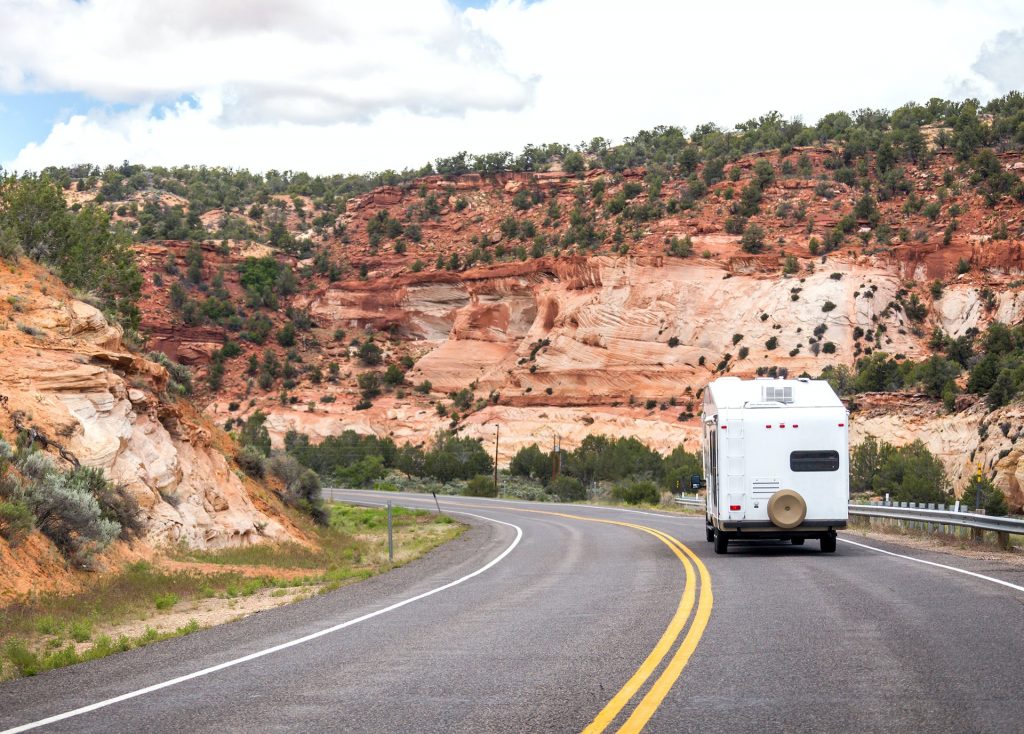
Once you’ve accepted you’ll have such issues and breakdowns, you’ll be ready for them and hopefully won’t get too frustrated when they come up. Usually they are small things that are pretty simple fixes. You can learn how to do a lot of repairs yourself by watching tutorials online, getting advice from other owners of the same RV make and model, and even calling the manufacturers service line and speaking with a technician.
We’ve been surprised by how many things we’ve been able to repair ourselves, despite not having any experience, knowledge or even a handy bone in our bodies. But, we also know, and have shared the same fear, that it can be terrifying to think of yourself on the side of the road in the desert stranded with no cell service (again, we automatically think of the worst case scenario!).
First of all, it’s very rare that we’ve been in an area with zero cell service. Of course you can go find it if you really want to, but if this is a big concern of yours you will likely stay in less remote areas. But chances are you will have cell service and be able to call for help.
More importantly though, it’s imperative that you cover yourself with a good insurance plan. They have specific insurance plans for full-time RVers and trust us, you need it. We needed our RV’s entire roof replaced after a hailstorm and were so thankful to have insurance not only to cover the costs of repairs but also to cover the costs of renting a place to stay while the repair was being done and even a rental car since our Class C was our main form of transportation at the time.
We recommend Good Sam’s RV insurance. But whoever you go with, you’ll want to make sure you have roadside assistance included. That way you’ll have peace of mind that you won’t be stuck in the case of a major breakdown.
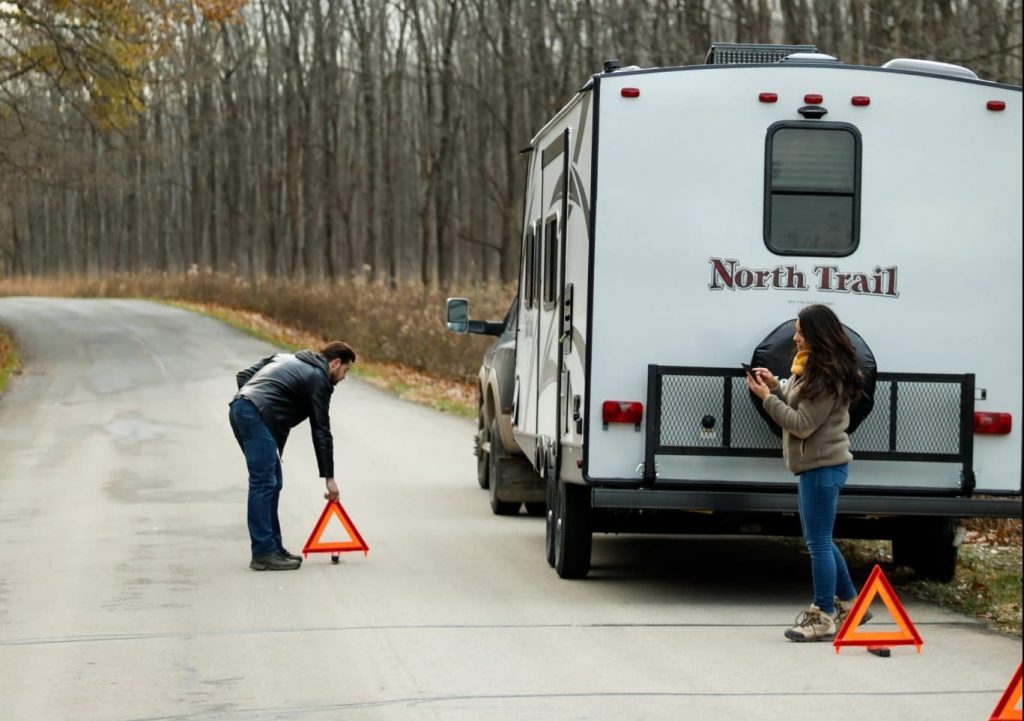
There are also other things you can do to help ease your anxieties in this area a bit more. Many RVers choose to travel or “caravan” with other RVers so that in case something goes wrong, they have the support and help needed to get back on the road. And of course there are plenty of safety precautions to take to lower your chances of having issues on travel days. Be sure to stay on top of your general RV maintenance and do a thorough check of things like your tire pressure to ensure you’re ready for a travel day.
You may also be concerned about other issues, such as emergencies in terms of your health and wellness or problems that may pop up back home with your loved ones. Again, staying close to amenities is helpful so that you can access healthcare quickly, and ensuring that you have good health insurance that you can use anywhere in the country will help.
As for things that may come up back home, we’ve been there and it’s not fun being across the country when you want so desperately to be back home with a family member who is sick or hurting. Just remember that you can always catch a flight and depending on the destinations, you can usually be back home in a matter of hours if need be. Just be sure to have a plan in case this happens. Think about where you will leave your RV and it may be necessary to make sure your spouse or travel partner can step in and operate the RV if you need to quickly leave.
Traveling full-time in an RV doesn’t necessarily put you at greater risk of having issues like these come up. You could break down in your car or have emergencies at your house come up, too. It’s all about taking precautions where you can, being prepared, having a plan and covering yourself as much as you can with proper insurance.
Closing
We hope we’ve helped you process through some of the fears you may be having about taking your life on the road. Full-time RVing has been such an enjoyable experience for us that we’d hate for others who are considering it to miss out on the experience because of some fears that may or may not be worth having. If there are fears you’re having that we didn’t cover in this post, feel free to reach out to us and we’ll do our best to help you move past those as well.
Pin This Post For Later:
Related Posts:


